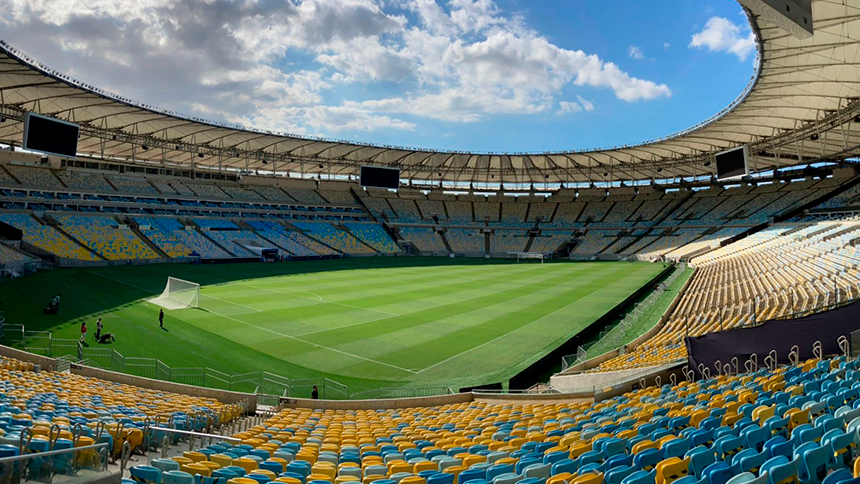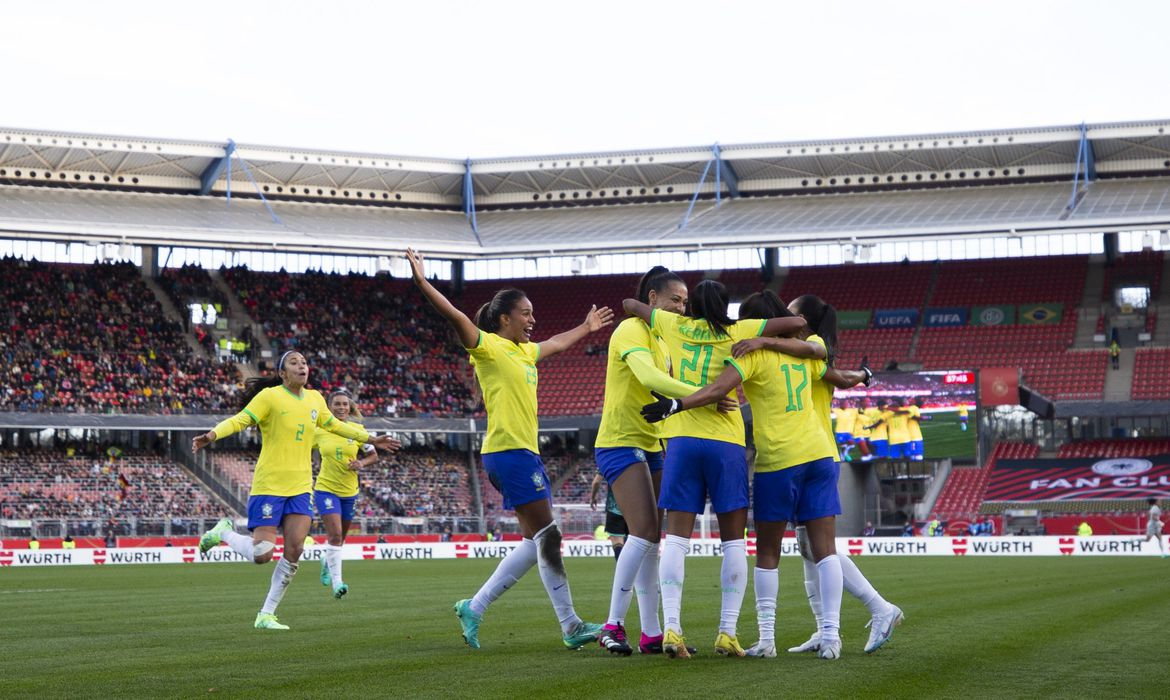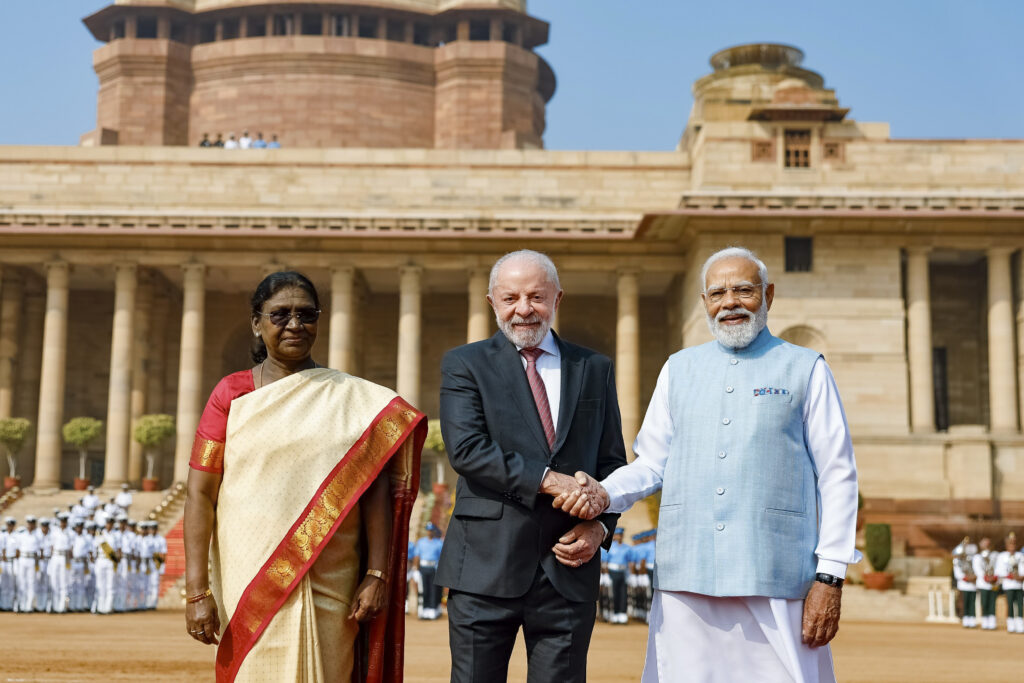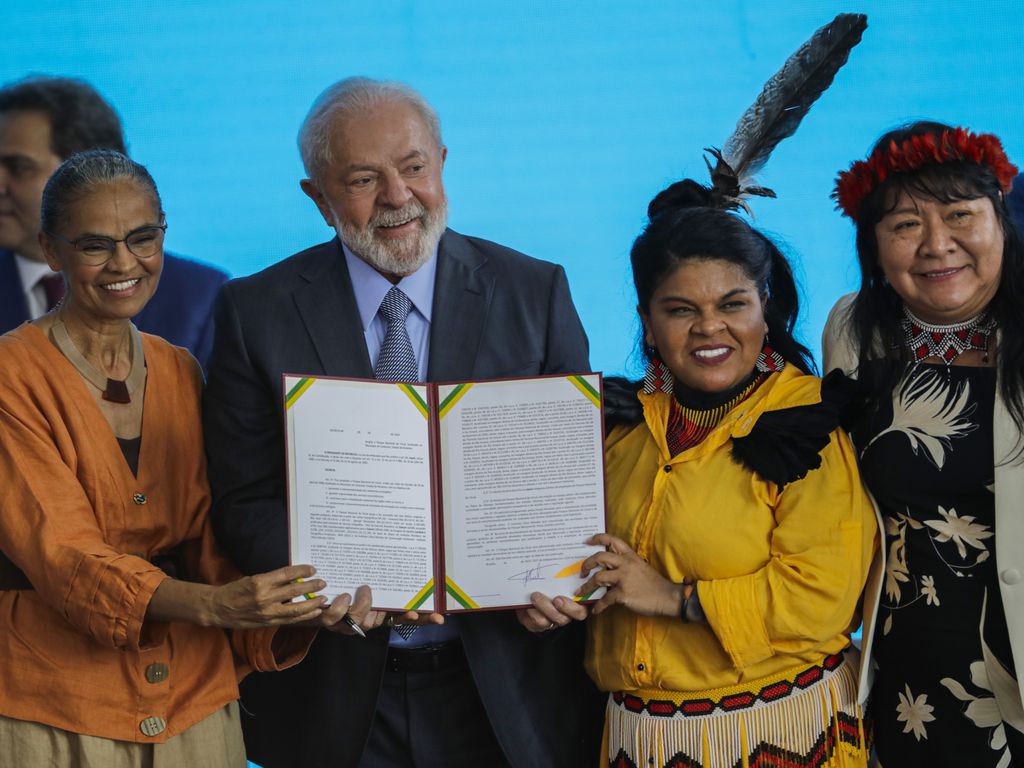São Paulo, Brazil – Soccer’s world governing body, FIFA, on Friday announced that Brazil will host the 2027 Women’s World Cup, becoming the first South American country to host the tournament.
The decision was announced at an event in Bangkok, Thailand where Brazil beat out a combined bid to host the tournament by the Netherlands, Belgium and Germany in a vote of 119 to 78.
“I thank everyone for their trust in choosing Brazil to host the 2027 Women’s World Cup. This is a victory for global women’s football. I guarantee you all that Brazil will have the best Women’s World Cup in history,” said the president from the Brazilian Football Confederation (CBF), Ednaldo Rodrigues.
According to Rodrigues, the World Cup will bring a lasting legacy in relation to the use of sports equipment to strengthen women’s football, the training of professionals and social programs linked to the event in all regions of Brazil.
Women’s soccer has been growing in recent years in a country that even banned women from playing the sport. Between 1941 and 1979, women were not allowed to play soccer in Brazil due to a presidential decree, which considered the sport “inadequate” for the “feminine nature.” Hosting a World Cup is now considered symbolic for sports fans.
“It’s important to give visibility and spark interest in the sport,” said Gabriela Nolasco, a journalist from Brazil and a fan of women’s soccer. But she warns that the event should not be held solely for the political interests of men. “May it be a moment for women. For everyone who continues to build the sport, who never lowered their voices and continued playing,” she said.

For Aline Lopes da Silva Candeo, who holds a Master’s degree in Sports Ethics and Integrity and who has researched the sustainable development of women’s soccer in Brazil, hosting the World Cup fuels hope that the sport will be more valued and better organized in the country, which is home to legendary players such as Marta, Cristiane, Formiga, Pretinha and Sissi.
Candeo hopes the tournament inspires the changes necessary to build the next generation of women’s athletes and fans. But she said that FIFA’s decision to name a World Cup venue only three years in advance — venues for the men’s World Cup are announced by FIFA roughly seven years in advance — does not allow for much planning for long term growth of the sport.
“This is fundamental when we think about the legacy that the tournament can leave,” Candeo told Brazil Reports. “The greatest example of a legacy plan is England with the Women’s Euro 2022, which was part of a 10-year action plan that the Football Association dedicated to the growth of women’s football in the country. This led to England winning a title, it was the push needed for women’s football to become popular in the country.”
Player reactions to the announcement
The coach of Brazil’s women’s national soccer team, Arthur Elias, celebrated FIFA’s decision and said that the team will work hard over the next three years to win the World Cup title for the first time, and to inspire even more women who are passionate about the game.
“Brazil, in addition to the passion of its people for football, has the greatest player of all time (Marta), a runner-up in the World Cup (2007), an international tradition in women’s football and has been making a series of investments in recent years,” said Elias.
Marta, a striker who was named the best player in the world on six occasions, said that playing in a World Cup at home is the dream of many Brazilian girls. “That’s why I want to thank everyone who was part of this achievement, and let’s continue together building the future that women’s football in Brazil, South America and the world deserves,” she said.
National team defender Rafaelle was moved to remember the beginning of her career, when women’s soccer matches weren’t even broadcast on television, and how the sport has evolved in recent years.
“Hosting the World Cup here in our country, in our stadiums and with our fans is, above all, feeding dreams and encouraging them. The visibility that a Women’s World Cup can bring to Brazil is to reaffirm for so many other girls spread across the most distant parts of the country that it is possible,” said Rafaelle.
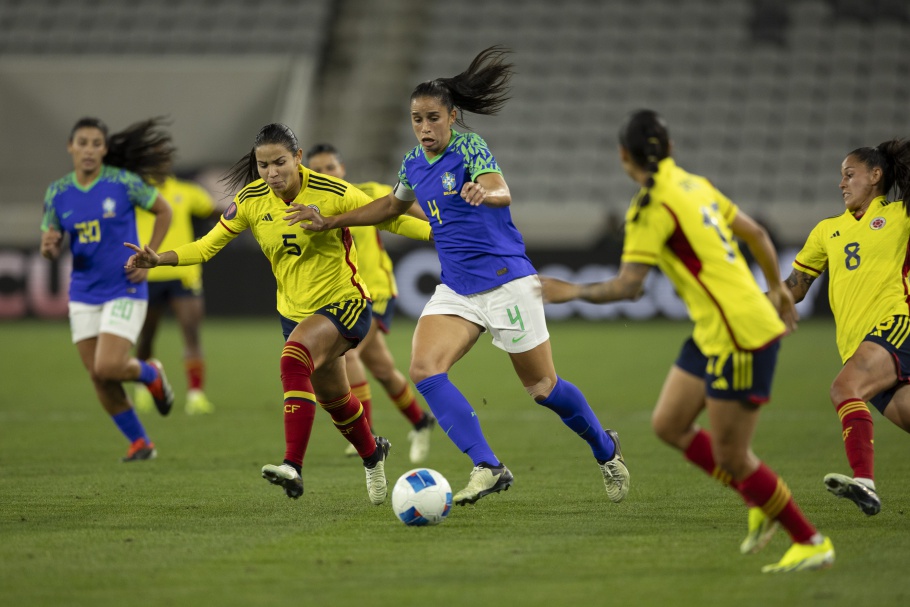

World Cup in Brazil
The 10th edition of the Women’s World Cup will feature 32 countries and will be played in ten Brazilian cities.
The opening and final matches, scheduled for June 24 and July 25 respectively, will be held at Rio de Janeiro’s Maracanã stadium, one of the most iconic soccer stadiums in the world. Other large cities, such as São Paulo and the capital Brasília, will also host games.
It will be the third time Brazil has hosted a soccer World Cup. The country hosted the men’s tournament in 1950 and again in 2014. Following the 2014 World Cup, a series of corruption scandals surrounding the construction of stadiums emerged which tainted the sporting event.
Brazilian soccer officials have said that the 2027 Women’s World Cup will not include any major construction projects in preparation for the tournament, and 10 of 12 stadiums used in 2014 will host matches in 2027. Only small adjustments highlighted by FIFA will be necessary, such as lighting and pitch maintenance, as well as VIP areas for guests.
